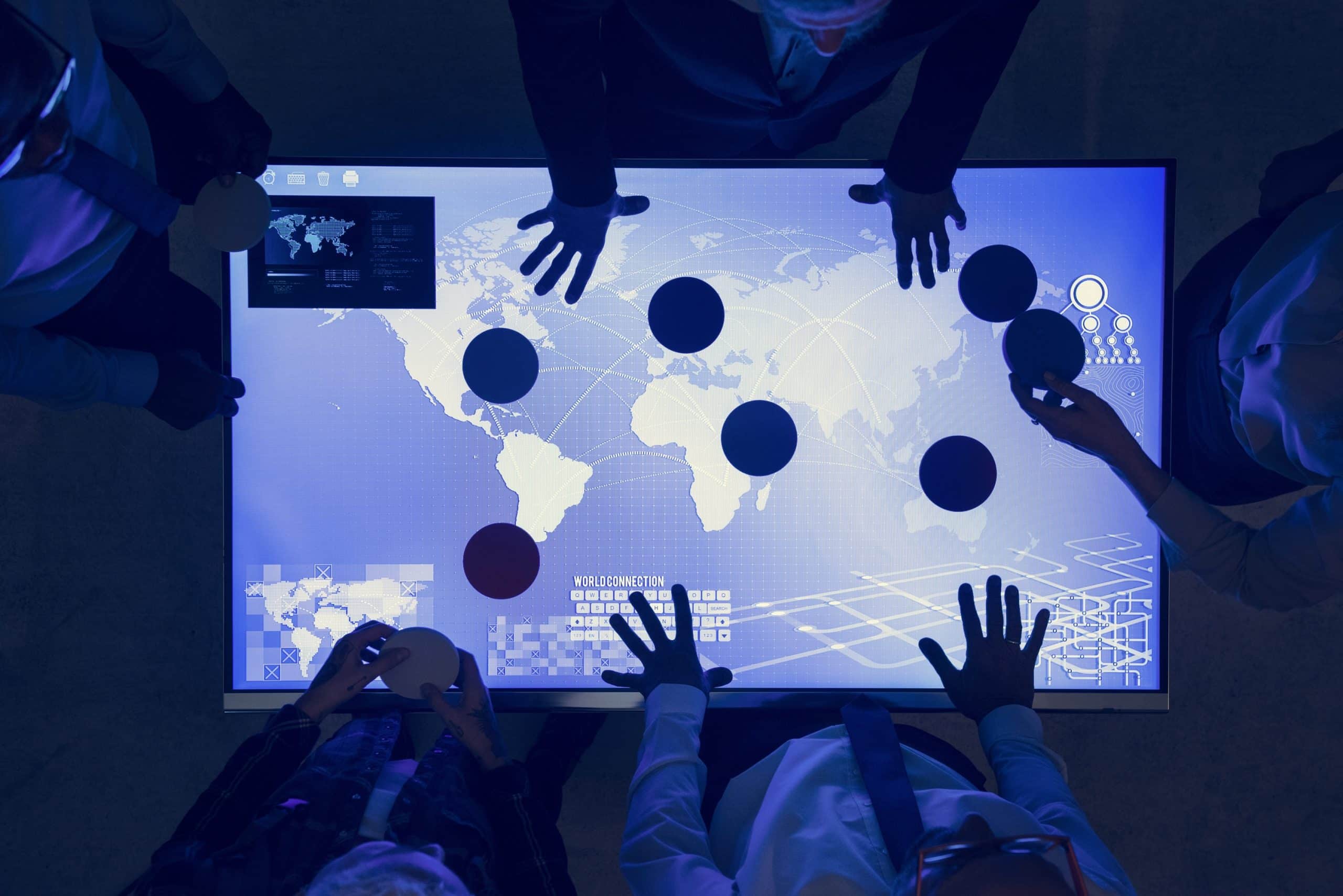What New Technologies Are Being Used for Rapid Disease Detection in UK Hospitals?

In the rapidly evolving world of healthcare, technology is making leaps and bounds, providing significant advancements in disease detection and treatment. Innovative technologies are changing the face of healthcare, making it possible to diagnose diseases swiftly and accurately. As a result, patient outcomes are improving. In the UK, the National Health Service (NHS) is at the forefront of these advancements, adapting to the changing landscape and implementing cutting-edge technology in its hospitals. This article explores the latest technologies being used in UK hospitals for rapid disease detection.
AI and Machine Learning in Clinical Diagnostics
Artificial Intelligence (AI) and Machine Learning (ML) are no longer the stuff of science fiction. These advanced technologies are now being utilised in a clinical setting, transforming the way diseases are detected and diagnosed.
Avez-vous vu cela : How Can Genetic Editing Contribute to More Sustainable Crop Production in the UK?
AI and ML applications are capable of processing vast amounts of data quickly and efficiently. This capability is being harnessed to sift through patient medical histories, genetic data, and clinical research to identify patterns that may point towards a specific disease. For instance, AI algorithms have been developed that can analyse medical imaging data to detect signs of cancer or heart disease, often before human physicians can see them.
It’s important to note that these technologies are not replacing human expertise but are aiding healthcare professionals in making more informed decisions. They are tools, programmed to learn from the vast stores of data they process, continually improving their diagnostic capabilities. By utilising AI and ML, clinicians are able to deliver more precise and timely diagnoses, leading to better patient care.
Sujet a lire : Tipping in france: a comprehensive guide for visitors
Telemedicine and Remote Patient Monitoring
Telemedicine has been a game-changer in healthcare, especially during the global pandemic. It allows healthcare professionals to monitor patients remotely, reducing the need for hospital visits and enabling early detection of diseases.
By monitoring a patient’s vitals and symptoms from a distance, clinicians can identify signs of diseases early on. This not only improves patient outcomes but also eases the burden on hospitals. Patients with chronic illnesses or those living in remote areas especially benefit from this technology, as they can receive care without having to travel long distances.
In the UK, the NHS has embraced telemedicine, with many hospitals offering virtual consultations. Furthermore, wearable devices are being utilised to monitor a patient’s vitals continuously, ensuring any changes in health are quickly detected and addressed.
Genomic Sequencing and Personalised Medicine
Genomic sequencing is a technological breakthrough that allows for a more personalised approach to healthcare. This technology involves decoding a patient’s DNA to identify genetic variations that may increase the risk of specific diseases.
In the UK, the NHS introduced the world’s largest genomic medicine service in 2018. It aims to sequence 500,000 genomes by 2024. This will provide a treasure trove of data, helping clinicians to identify patterns and associations between genetic variations and diseases.
By utilising genomic sequencing, clinicians can provide personalised care, tailored to a patient’s genetic makeup. This technology not only allows for the early detection of diseases but also helps clinicians to predict a patient’s response to specific treatments. As a result, patients receive care that is most likely to be effective for them, improving their chances of recovery.
Digital Pathology and AI-Powered Microscopy
Digital pathology involves digitising glass slides that contain tissue samples for analysis. It allows pathologists to view these slides on a computer screen, enabling quick and efficient diagnoses.
Coupling digital pathology with AI, pathologists have a powerful tool at their disposal. AI-powered microscopy uses machine learning algorithms to analyse digital images of tissue samples. It can detect abnormalities such as cancer cells, often with higher accuracy than human pathologists.
The NHS has been piloting digital pathology in several hospitals, and the results have been promising. The technology offers a more efficient workflow, reducing the time taken for diagnosis. It also allows for the easy sharing and discussion of cases among clinicians, facilitating collaborative approaches to patient care.
Internet of Things (IoT) in Healthcare
The Internet of Things (IoT) is a network of interconnected devices that communicate and exchange data. In the healthcare setting, IoT devices include wearable health monitors, smart inhalers, and glucose monitors. These devices collect health data and send it to healthcare professionals for analysis.
IoT devices play a critical role in disease detection. By continuously monitoring a patient’s vitals and other health indicators, these devices can detect changes that may signal the onset of a disease. They provide real-time data, allowing for prompt intervention and treatment.
In the UK, the NHS is actively encouraging the use of IoT devices in patient care. It recognises the potential of these devices in improving patient outcomes and reducing the burden on the healthcare system.
Overall, it’s clear that technology is transforming healthcare in the UK. The NHS is leading the way, adopting advanced technologies that allow for rapid disease detection. These technologies are not only improving patient outcomes but are also making the healthcare system more efficient. As technological advancements continue, one can only imagine what the future of healthcare will look like.
Deep Learning for Drug Discovery and Development
Deep learning, a subset of artificial intelligence, is making significant strides in the arena of drug discovery and development. The complex algorithms of deep learning systems, capable of learning from large datasets, are helping to expedite the process of discovering novel drugs and predicting their effectiveness.
Deep learning has the potential to revolutionize the entire cycle of drug discovery, from identifying potential drug targets to predicting the potential side effects of new drugs. These algorithms analyse vast amounts of biological data, including genomic sequences and protein structures, to uncover patterns and associations that can inform drug discovery.
For example, deep learning systems can predict how different drugs will interact with various proteins in the body, aiding in both the discovery of new drugs and the repurposing of existing ones. These predictions can lead to more targeted and effective drugs, improving patient outcomes.
In the UK, the integration of deep learning systems in drug discovery has been facilitated by the NHS. By collaborating with technology companies and academic institutions, it is leading the charge in leveraging deep learning for improved patient care. The goal is to make the drug discovery process faster, cheaper, and more efficient, ultimately leading to better treatments for patients.
The Role of Digital Health in Mental Health Care
The rise of digital health, which refers to the use of technology to improve health and wellness, has had a profound impact on mental health care. In UK hospitals, digital health tools such as mobile apps, online platforms, and wearable devices are being used to aid in the detection, diagnosis, and treatment of mental health conditions.
Digital platforms are providing patients with remote access to mental health services, reducing barriers to care such as distance, cost, and stigma. Patients can connect with healthcare professionals in real time, participate in virtual therapy sessions, and access mental health resources at their convenience.
Moreover, wearable devices and mobile apps are allowing for continuous monitoring of physiological parameters, such as heart rate and sleep patterns, which can provide valuable insights into a patient’s mental health. Any irregularities can signal mental health issues, enabling early detection and intervention.
The NHS has been proactive in implementing digital health tools in mental health care. It has collaborated with tech companies and research institutions to develop and validate digital solutions for mental health. The ultimate aim is to provide accessible, timely, and effective mental health care to all patients, thereby improving overall societal health.
Conclusion
In conclusion, the technological revolution in healthcare is rapidly changing how diseases are detected and treated in the UK. The NHS’s commitment to adopting these advancements has seen the growth of a healthcare system that is increasingly effective, efficient, and patient-centric.
Artificial intelligence, machine learning, deep learning, and other digital health technologies are helping healthcare providers to make more informed decision-making, improve patient care, and optimise healthcare systems. By harnessing the power of these technologies, the healthcare industry is moving towards a future where diseases are detected earlier and treatments are more personalised, leading to improved patient outcomes.
Moreover, these advancements are not only transforming patient care but also impacting the wider healthcare industry. They are aiding in drug discovery, improving mental health services, and reducing the burden on healthcare organisations and medical staff.
As we look to the future, it is clear that technology will continue to play a central role in healthcare. As the NHS and other healthcare bodies continue to embrace these advancements, we can expect to see further improvements in disease detection and patient care. Through continued investment and research, the possibilities are endless for the future of health care in the UK.
